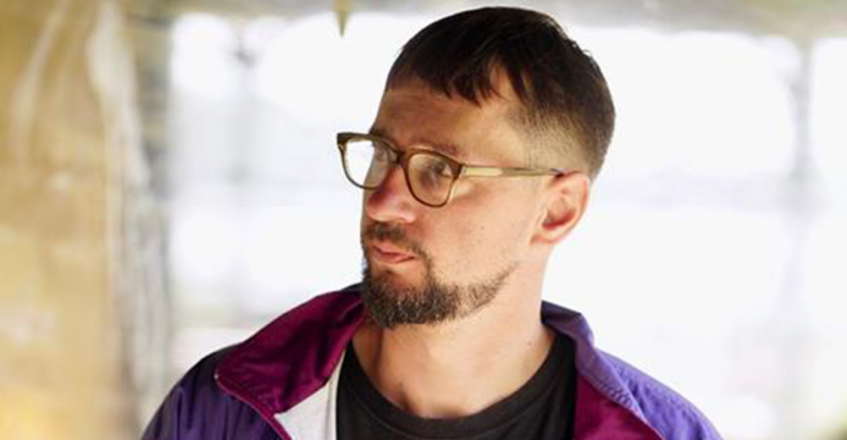News
Mladen Bundalo: In The Film We Specifically Deal With The Situation of Leaving, We Fight For Flavour And Asefulness
Mladen Bundalo is an interdisciplinary artist, filmmaker, and author of Bosnian origin, currently based in Brussels
Mladen Bundalo is an interdisciplinary artist, filmmaker, and author of Bosnian origin, currently based in Brussels. His works have been screened and presented in more than fifty international film and video festivals, such as the International Documentary Film Festival Amsterdam, the Ji.hlava International Documentary Film Festival, the Go Short–International Short Film Festival Nijmegen, Vidéographies21 in Liège, the Sarajevo Film Festival, and the Festival Punto de Vista. His most recent short documentary, EVERY TIME YOU LEAVE, YOU ARE BORN AGAIN, had its premiere at Visions du Réel, where it won a Special Mention of the Jury and at the 31st Sarajevo Film Festival it was screened in the Competition Programme - Documentary Film.
Mladen Bundalo is originally from Prijedor but lives and works in Belgium. Many people who have left their homeland behind and started a life on some other part of the world have a strong need to define, or re-define, their own identity. How much has this film helped you in reflecting on who you are and what are you made of?
This film comes from my broader interest in art as a possibility for a kind of kitchen of reality, a safe place within which we give flavour and accept into our being something that in itself can be quite inedible. Changing the environment, especially in the context of leaving for an EU country, is a process that precisely accumulates a lot of inedible situations. Borders, residence permits, subordination, controls, precariousness, separation, displacement, all of that is quite tasteless, and we take it on as a new part of ourselves. For me personally, it is important to process these situations and somehow make them useful in terms of understanding and acceptance. So in the film Every Time “You Leave, You are Born Again”, we specifically deal with the situation of leaving, we enter it, inhabit it, explore it from within, we fight for flavour and usefulness.
There is a strong visual and, especially, emotional contrast between the cold, dark and empty spaces of the theater from which you embarked on your artistic journey and the warmth of the remaining foundation of your family, from whose intimate environment of flowers, chickens, piglets and icons you left. How much of the cold and how much of the warm do you bring with you from your homeland?
I hope I am warm in that sense. This is typical of constant movement, but in general I have a warm attachment to direct contact with free people and nature, and a cold attachment to ideologies and systems of control. My family and inner circle of friends and collaborators have never conditioned me in the choice and manner of my work, which is especially important in the context of a country whose culture is often kidnapped for political goals and bizarre narratives. In that sense, they are my safe base, free territory and place of creation. When I talk about the beginning of my work and homeland to someone who does not know our region, I am talking about wonderful encounters with people who unconditionally and selflessly helped, about the breadth and depth of trust, about the reduced role of the state in the regulation of interpersonal relations. In Belgium, working relationships are quite mediated by public and private services and opportunities, which is warm for general social places, the common good or situations of crisis, but on a daily basis it is quite cold.
Grandma Rada is a typical Balkan grandmother. Have you eaten, are you hungry, are you cold, wait until I spill water after you... How much can Belgians understand such questions and our grandmothers, those steadfast guardians of tradition and family love?
The custom of spilling water for a safe journey and return in Belgium is less well known, but caring and attention to one's fellow human beings is a dominant trait of our species. Belgium, like our country, has its own challenges of time, but the relationships we build within our homes are extremely resistant to various attempts at social control everywhere. Ethnographic studies have shown that although Soviet apartment blocks are all similar, the interior of each apartment was different. On the other hand, the current attempt to commodify everything still fails to conquer the "invisible" internal economy of the home. This, or rather the emotional ecology of the home, is a field that has undergone a considerable change in understanding over the past thirty years, becoming from a space for "social reproduction" to a space for "creative reproduction". In this sense, family love for me is not a matter of tradition or a specific culture, but a struggle for integral freedom and a safe place from various ideologies. For this reason, art and film that deal with the themes of home and family relationships are very socially engaged.






